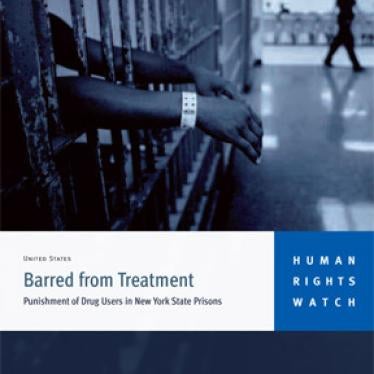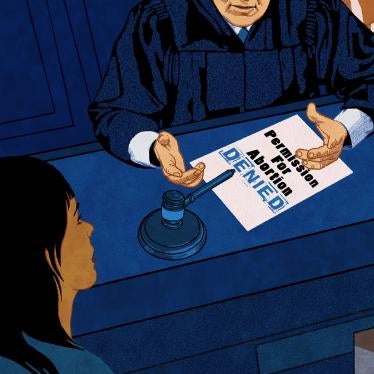We met Jose[1] at Camp Zarzal, a minimum-security prison in Rio Grande, Puerto Rico, this past May. At 33, he'd been a chronic drug user for 20 years, spending much of the time cycling in and out of prison, and ultimately losing touch with his family and child. Jose had tried many different treatment programs over the years, but nothing worked. Last November, at Camp Zarzal, he started buprenorphine treatment, daily medication prescribed for opioid dependence. He was amazed at the results.
"This medication really works," he told us. "Almost everything about my life has changed: my personality, communication with my family, the people I hang out with. I see life from a completely different point of view."
Puerto Rico provides Medication Assisted Therapy (MAT) with methadone and, until recently, buprenorphine, to a limited number of heroin-dependent inmates, as part of comprehensive psychosocial support, delivered by professional staff. MAT blocks the effects of opioids on the brain, freeing heroin users from cravings and allowing them to function normally. Thirty years of research has produced what the World Health Organization calls "overwhelming" evidence that MAT is the most effective treatment for opioid addiction. It reduces drug use, criminal activity, risk of HIV and Hepatitis C transmission, and prevents overdose.
Prison authorities had planned to scale up the MAT programs, recognizing that effective drug treatment is critical to the health of Puerto Rico's prisoners, their families and communities. But the newly elected administration has reversed course. , Camp Zarzal's buprenorphine program was terminated abruptly in April, although Bayamon Prison's methadone program remains so far. Last week, it was reported that Corrections Secretary Molina Rodriguez claimed the programs did "nothing" and that he planned to focus resources on "faith-based" treatment.
If this is the secretary's position, it contradicts the experience of his own medical staff. It also ignores vast clinical evidence showing that without MAT, most heroin-dependent people relapse, no matter how much psychosocial, religious, or other support they receive.
Prison officials say that 80 percent of inmates are drug dependent, over half addicted to heroin. These high rates contribute to alarming HIV and Hepatitis C rates among Puerto Rican prisoners. Nearly 7 percent of Puerto Rico's inmates are HIV-positive, versus 1.9 percent of prisoners in the U.S. overall. One-third of Puerto Rican prisoners suffer from Hepatitis C; many inmates are HIV/Hepatitis C co-infected.
By providing MAT to prisoners who need it, Puerto Rico is embracing good public health and correctional policy. It is also meeting its human rights obligations. Puerto Rico joins 33 countries - including Canada, Australia, Albania -- that provide this treatment to prisoners to satisfy duties set by core human rights treaties to ensure health care in prison is equivalent to that available in the community. The UN Special Rapporteur on Torture and other Cruel, Inhuman or Degrading Treatment or Punishment recently found that failure to provide methadone and buprenorphine to opioid-dependent prisoners, "may constitute cruel, inhuman or degrading treatment and is therefore prohibited under international human rights law."
At the core of human rights law is concern for human dignity. We saw first-hand how Puerto Rico's MAT programs had restored participants' dignity. One prisoner reported, "I now have personal property, like soap and shampoo. I have put pictures up on the walls of my cell. Before I had nothing, I was just shooting up and I had nothing... Now my family comes to visit me, and they even touch me. "
Everyone we spoke to at Camp Zarzal - prison staff, inmates, social workers - was devastated by the program's close. One staff member said that the program brought positive changes for individuals and the institution. "There was a big change in the institution itself. . . . Now they were respectfully addressing the officers, they had goals, they were planning for the future." Morale plummeted when the buprenorphine program ended. Prisoners "had been through all types of therapy and this was the only thing that had ever worked, and now it was being taken away."
Puerto Rico's medication-assisted therapy programs are recognized models for prison systems in the U.S. and worldwide. We urge the government of Puerto Rico to maintain this leadership, and honor its human rights obligations, by protecting these lifesaving programs.
[1] This is a pseudonym used to protect the inmate's identity
Rebecca Schleifer is advocacy director and Megan McLemore is a researcher for the Health and Human Rights division of Human Rights Watch.







